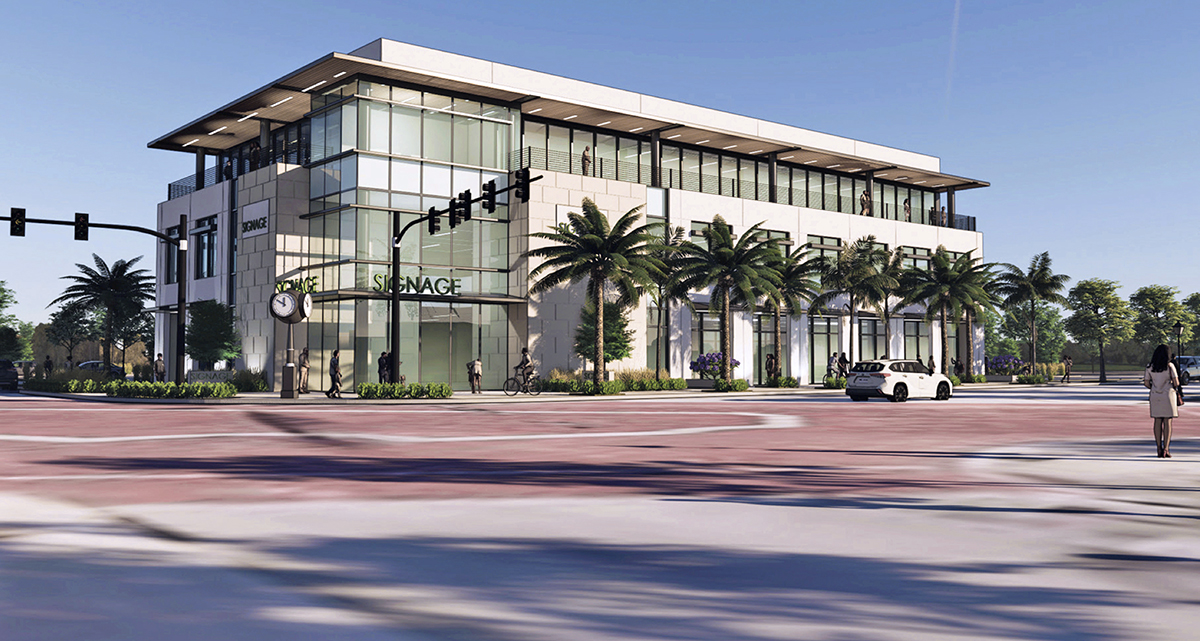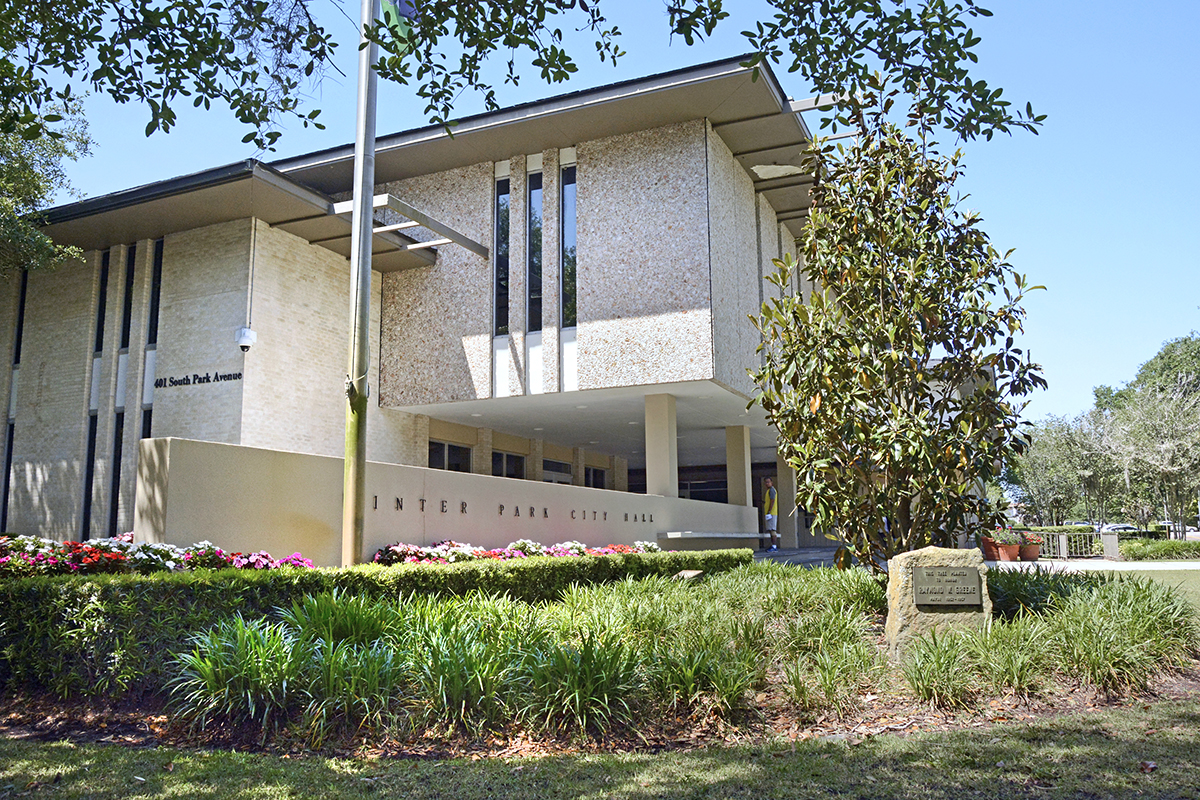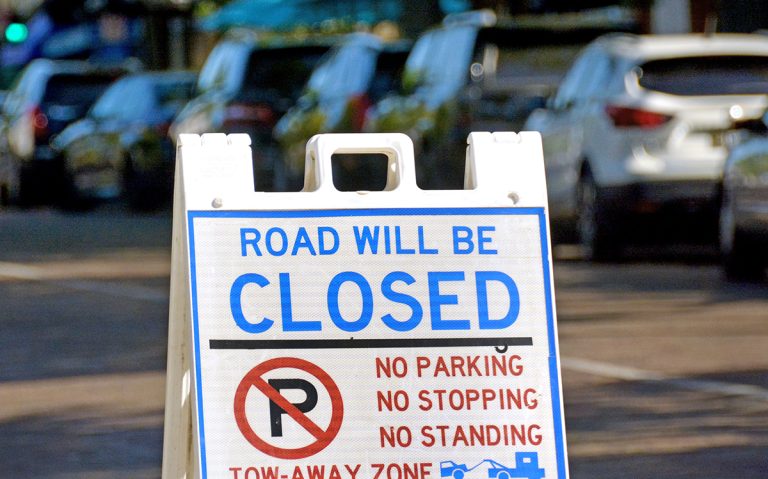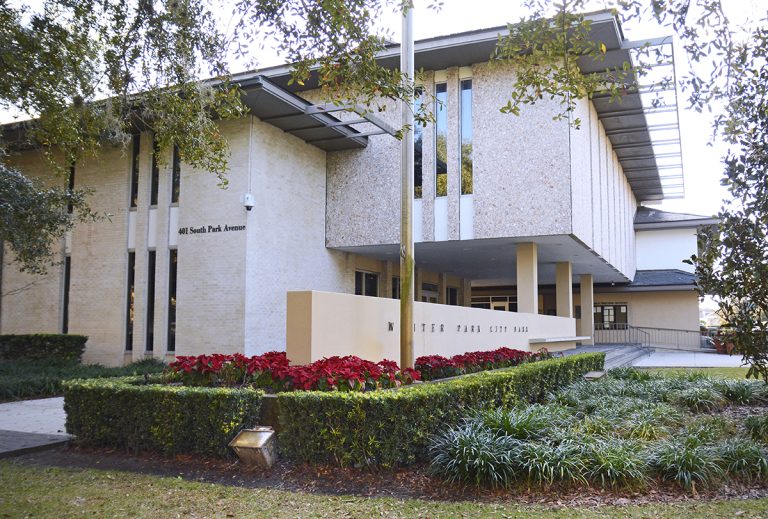The first construction proposal in Winter Park’s Orange Avenue Overlay (OAO) District cleared the Feb. 28 City Commission meeting. A unanimous vote favoring conditional use approval for McCraney Property Company’s three-story, 29,500-square-foot office building at 1100 N. Orange Ave. came after hours of debate that seemed to be headed toward a 3-2 vote against the project.
Adjustments to the building’s height and architecture resolved previous conflicts with District codes; however, questions over a mixed-use requirement intended to diversify its business presence proved to be a sticking point for commissioners. While OAO codes define “mixed-use” as a combination of residential, commercial, industrial, office, or institutional use, Commissioners Marty Sullivan, Todd Weaver, and Vice Mayor Sheila DeCiccio were against McCraney’s contention that leasing the building’s Class A office space to a variety of companies would satisfy the requirement.
Mayor Phil Anderson and Commissioner Kris Cruzada spoke in favor of the proposal as a means of filling a citywide need for Class A office space, but also for its low density. “Requiring mixed use would require adding volume and making the building bigger,” Anderson said about the need for a parking garage to accommodate retail and restaurant customers. “If we force a mixed-use definition, we will force more cars onto this parcel.”
Vice Mayor DeCiccio noted the OAO’s purpose to “protect Orange Avenue from becoming an extension of 17-92” by preventing an excessive level of commercial development. “If we provide the interpretation of the Code you are asking for it will set a precedent for all other developers.”

After hearing 18 residents and business owners express views for and against the proposal during public comments, Mayor Anderson called a break to allow McCraney attorney Rebecca Wilson to confer with company representatives over possible solutions for mixed-use compliance. Wilson then stated the requirement would be met with options compatible with the building’s available parking. These will include one or more of the following:
- Retail uses such as a design center or furniture store
- A restaurant with less than 12 seats
- Personal services such as a fitness or health center
- Instructional use such as a ballet or art school
- A pharmaceutical compounding lab
When Commissioner Sullivan asked for further clarification on which businesses were likely to be included, Wilson replied, “whoever would sign a lease first.”
“Well, I guess we have settled that,” Sullivan said.
Leaf blower referendum
Commission also took the first step toward giving Winter Park voters the final say in the city’s gas-powered leaf blower saga. While Commissioners Sullivan and Weaver spoke against placing an ordinance on the March 2025 ballot that would allow residents to vote on a repeal of the ban on the lawn care tools – as per Sen. Jason Brodeur’s request – they were in favor of adding the ballot item in response to a citizen-led petition drive.
Commissioner Kris Cruzada expressed hesitancy over breaking what he called a “good faith” request by Brodeur, made in response to constituents’ requests for state intervention on the ban, which many see as government overreach. “I want to try to work with him, and work with our residents and our businesses,” Cruzada said, “so that this can be voted on by each resident.”
Commissioner Weaver reiterated previous arguments in support of the ban, citing the negative effects of the noise and air pollution created by gas-powered motors. He also responded to accusations of government overreach by noting examples of government intervention on behalf of public health and safety that included banning lawn darts, regulations on oil tankers, and pulling opiates from drugstore shelves.
A total of eight residents took the podium during public comments, each speaking against the ban with several citing the inefficiency and added cost of switching to electric leaf blowers. Several speakers also pointed to the penalty clause of the current ordinance, which requires a $500 fine or 60-days imprisonment for violations. Mayor Anderson stated the ban includes language intended for the enforcement of repeated noise ordinance violations, and that he would make a motion to change the clause to include only monetary penalties.
Commission voted 3-2 to approve a resolution placing the ordinance on the March 2025 ballot, and to further postpone enforcement of the current ban.
Rollins housing project
At the start of the meeting, Mayor Anderson noted the removal of the Rollins College workforce housing proposal from the evening’s agenda. As reported by the32789, the College has opted to discontinue its pursuit of conditional use approval for its apartment building plan as it stands. Anderson said that Rollins will be looking into its options and that the proposal may return for review at a future meeting.



